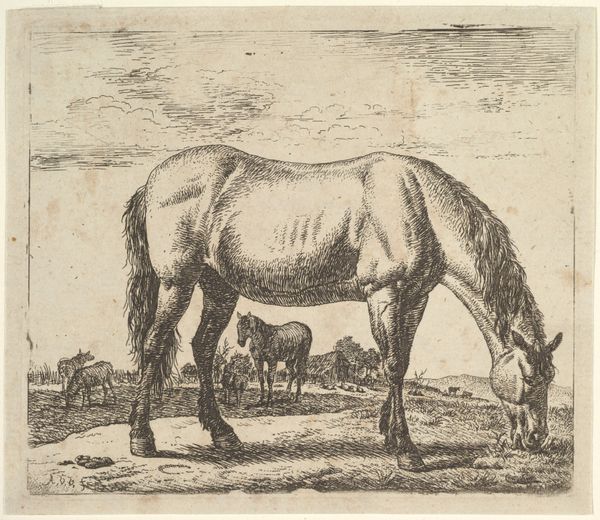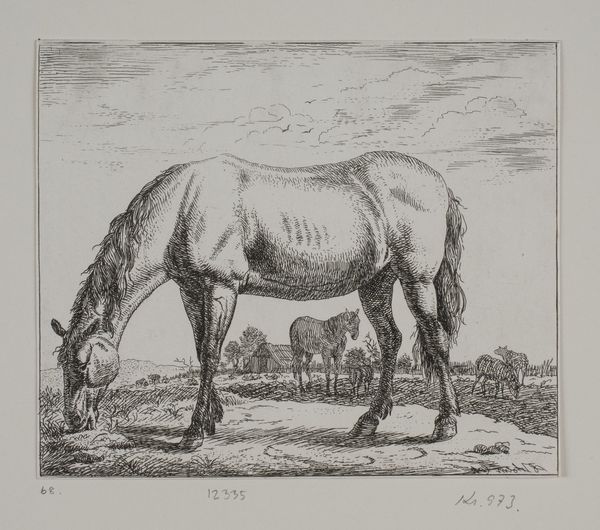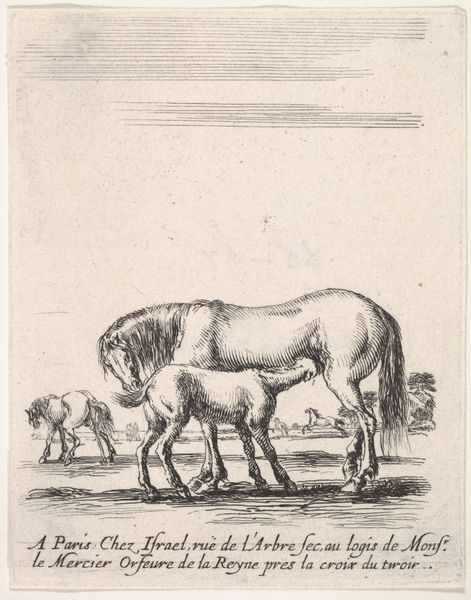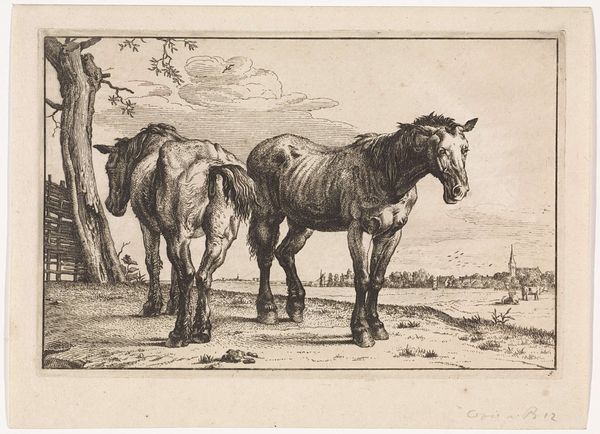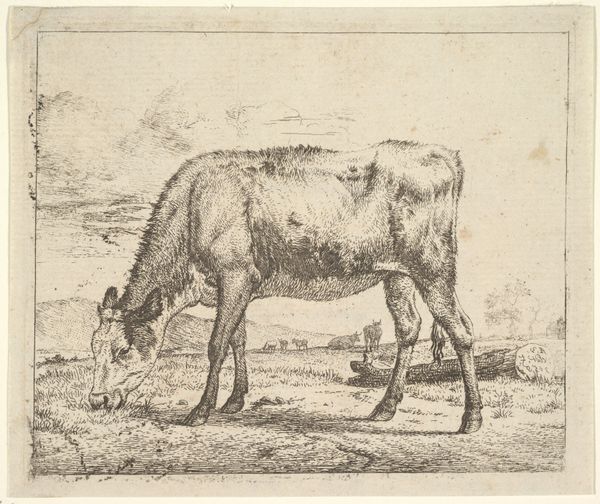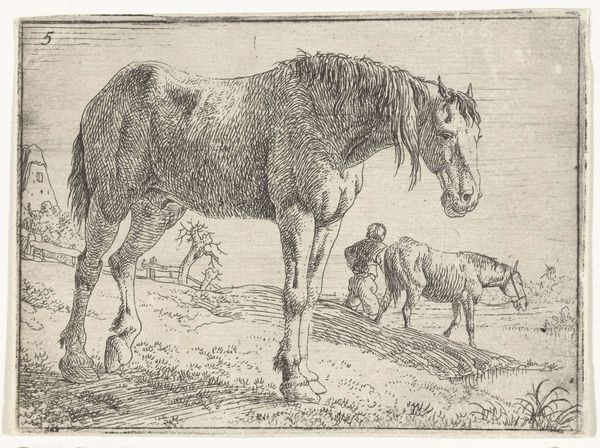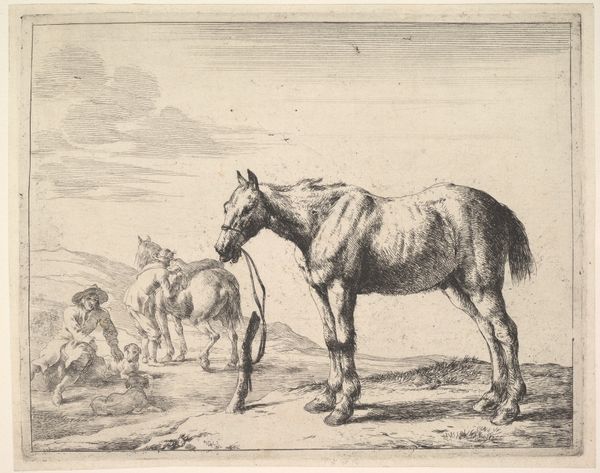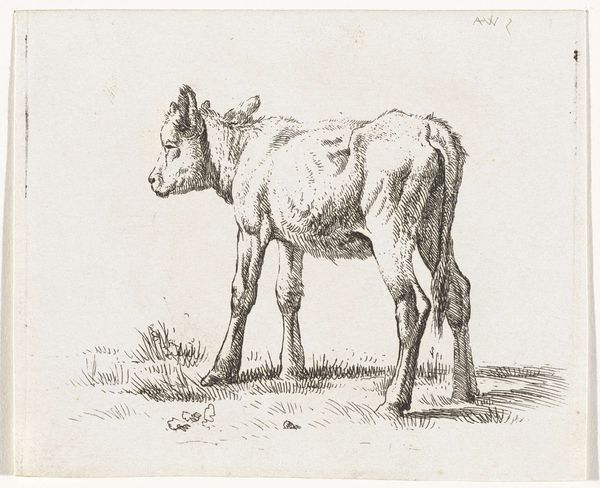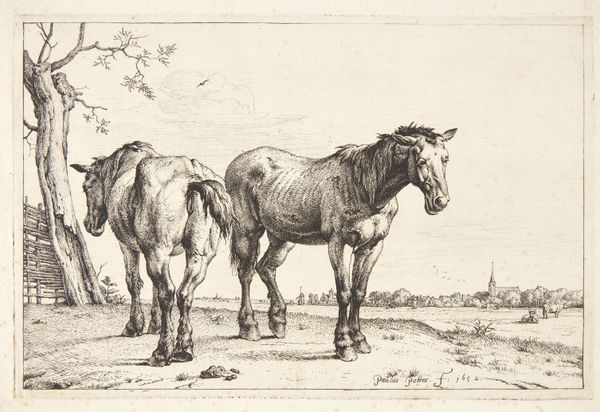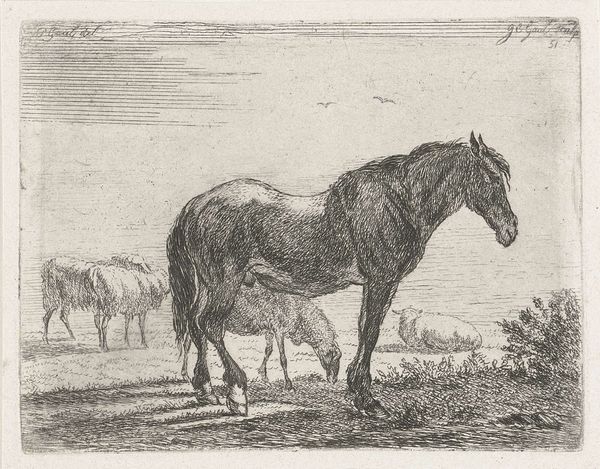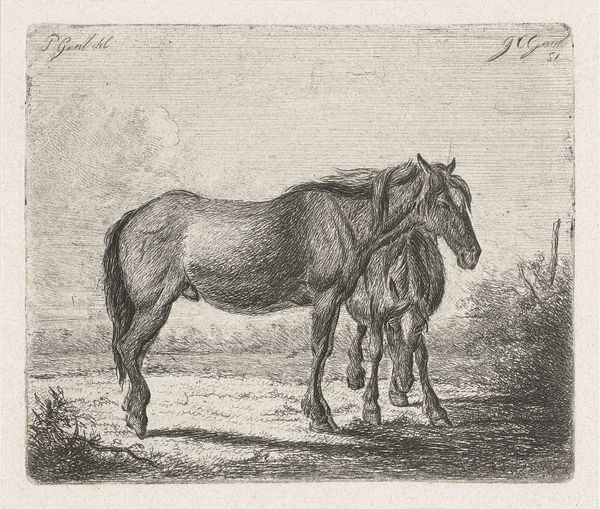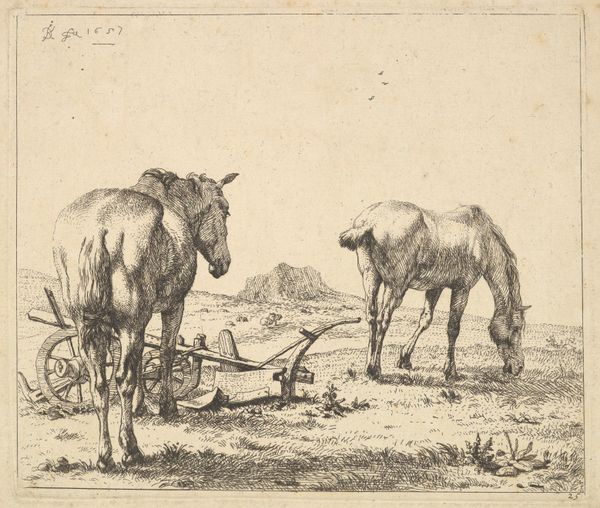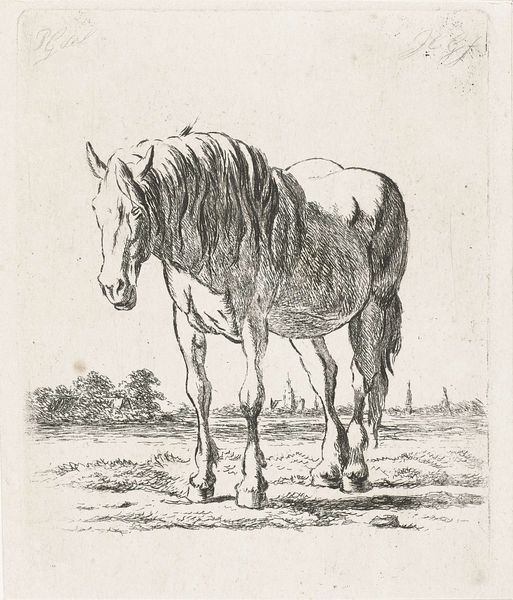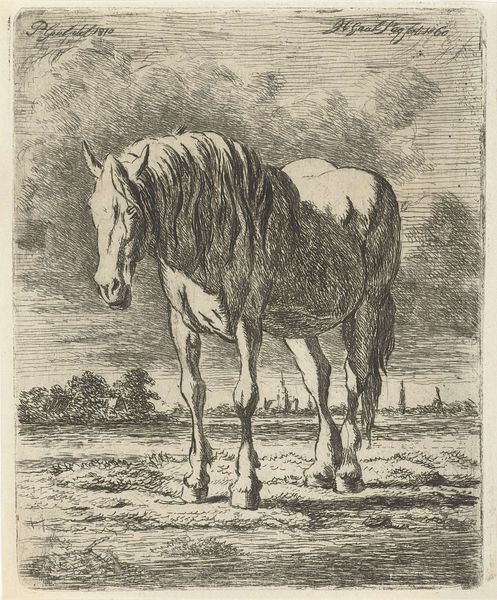
print, etching, engraving
#
animal
#
dutch-golden-age
# print
#
etching
#
landscape
#
form
#
horse
#
line
#
engraving
#
realism
Dimensions: height 117 mm, width 130 mm
Copyright: Rijks Museum: Open Domain
Editor: This print, "Grazing Horse," likely created between 1659 and 1709, is attributed to an anonymous Dutch artist and employs etching and engraving. I’m struck by the stark realism, yet also by the rather strange prominence given to the central horse’s…form. How do you interpret this work? Curator: The seemingly simple image carries potent symbolism when viewed through the lens of cultural memory. Horses, especially in 17th century Dutch art, often transcended their literal representation. What emotional resonances do you perceive radiating from this horse, standing there so steadfastly in the landscape? Editor: Well, aside from just thinking it’s an odd portrait given the era, I see maybe a quiet strength? Like, a working animal given a sort of noble status. Curator: Precisely! Think of the horse as a vessel, not just of physical labor, but of a deeper connection to the land and its prosperity. The act of grazing becomes more than sustenance; it's a symbol of harmony between man, animal, and nature. The serene landscape is more than just background. The humble posture and natural environment may point to Dutch Golden Age ideals of agrarian virtue and a simpler life, celebrated against the backdrop of burgeoning urban centers and wealth. What does that visual choice say? Editor: So, the artist may be imbuing the horse with societal values… I hadn't thought of it that way. The focus on the natural, everyday scenes. It’s almost like a gentle reminder? Curator: Exactly! A tangible reminder, echoing a deep-seated cultural narrative of the time. Reflecting on that single symbol – that simple grazing horse – it reminds us that images are not neutral.
Comments
No comments
Be the first to comment and join the conversation on the ultimate creative platform.
